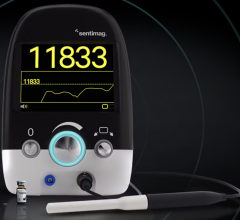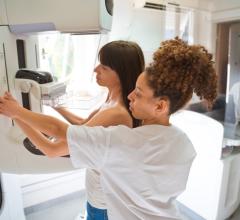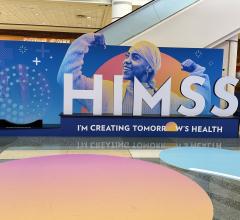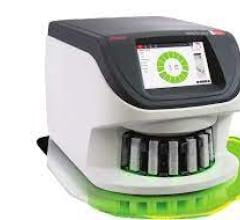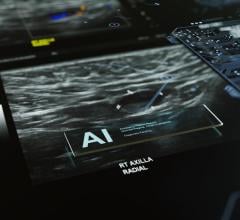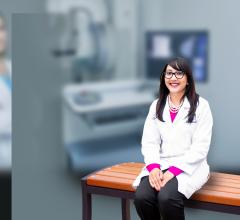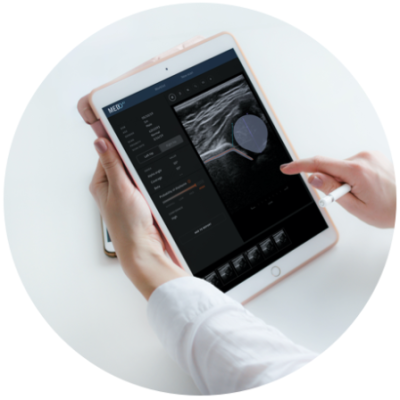
December 15, 2021 — Medo, a technology startup and world leader in using artificial intelligence (AI) to drastically simplify ultrasound in healthcare, and Medical Imaging Consultants (MIC), Western Canada’s leading radiology partnership, are thrilled to announce their partnership aimed at revolutionizing diagnostic imaging.
Medo, founded in 2018, is dedicated to bringing medical imaging to everyone, when and where they require it most, impacting billions of lives in the process. Dornoosh Zonoobi, Medo’s CEO describes the company’s founding as “the realization that ultrasound as a modality is affordable, non-invasive, and portable. Because of this, it has the potential to truly scale into the hands of every caregiver. But despite all of ultrasound’s promise, it is incredibly hard to use - even for expert users. We saw an opportunity to change this by using cutting-edge artificial intelligence to bridge this usability gap, enabling novice users while at the same time making expert ultrasound users like those at MIC more proficient and accurate in making common and critical diagnosis.” In the three years since its founding, Medo has raised several rounds of investment, built multiple FDA-cleared products which drastically simplify the usage of ultrasound, and deployed its products to clinics, hospitals, and imaging partners around the globe.
MIC, meanwhile, is Western Canada’s leading imaging partnership for the last 25 years. Ron Van Vliet, CEO at MIC goes on to say “MIC radiologists and staff are dedicated to optimizing results and enhancing the experience of patients who choose MIC for diagnostic imaging services. To maintain our position as their imaging provider of choice we are constantly looking for ways to provide services more efficiently, often by leveraging the latest technologies available. Our partnership with Medo allows us to explore and aid in the development of artificial intelligence applications that enhance our ultrasound services, providing more consistent imaging with reduced errors, while improving the efficiency of our sonographers and radiologists.”
Given Medo’s expertise in building revolutionary but yet regulatory cleared ultrasound AI innovations, and MICs leadership adopting and pioneering the application of these technologies, the partnership is a truly exciting opportunity for both parties. MIC will have early access to this innovative technology which will improve patient experience, while providing insights to guide Medo’s strategic roadmap regarding what products and features are of most value to patients and caregivers. Adoption and industry insight are incredibly valuable for a startup company like Medo.
The first collaboration is an application that drastically simplifies thyroid examinations. Over 1.5 million thyroid ultrasound scans are performed annually in the USA alone. Once referred to, current practices involve tedious, time-intensive, and error-prone screening processes, which are prone to mischaracterizations. The result is an expensive and subjective diagnosis. Dr. Chris Fung who is an assistant clinical professor at the University of Alberta, and radiologist at Medical Imaging Consultants says “performing ultrasound thyroid exams are widely considered among the most tedious, time consuming, and frankly subjective consult a radiologist could be asked to perform.” Dr. Fung goes on to say “Medo Thyroid has drastically simplified the process for our ultrasound techs and radiologists while creating a more objective diagnosis. MIC has helped shape Medo’s thyroid product into one that is now saving their clinicians time, while making this diagnosis more accurate.” Kaila O’Handley, a senior sonographer at MIC, shares the perspective of the technologist performing the scan - “Medo has enabled technologists to use a simplified thyroid protocol allowing for a shortened scan time. Medo also simplifies the TIRADS protocol by allowing for easier and more consistent assessment of nodules by technologists.”
Applying artificial intelligence to MIC thyroid exams is just the beginning. Many more examinations will be radically simplified and made more objective and accurate via the application of Medo’s technologies. This partnership between two leaders in ultrasound diagnostic imaging represents an exciting first step, bridging the gap between technology and product innovation and its application in the real world.
For more information: www.medo.ai
Additional RSNA21 information can be found here.

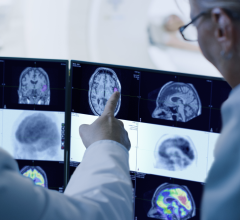
 May 02, 2024
May 02, 2024 


